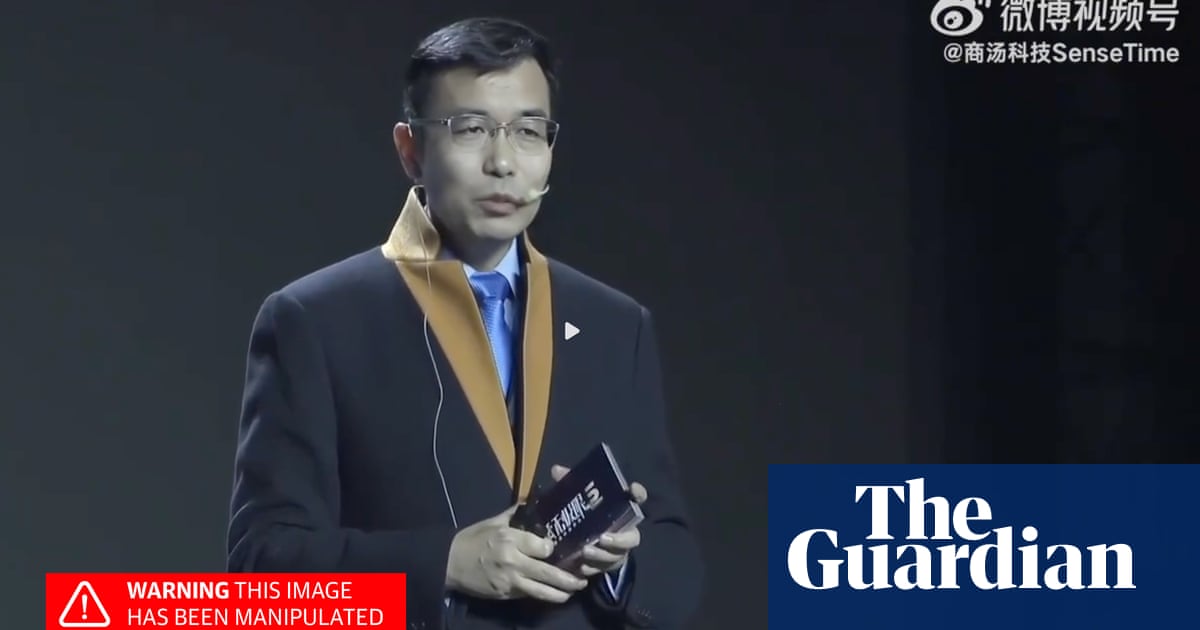As millions of people across China travel to the graves of their ancestors to pay their respects for the annual tomb-sweeping festival – a traditional day to honour and maintain the graves of the dead – a new way of remembering, and reviving, their beloved relatives is being born.
For as little as 20 yuan (£2.20), Chinese netizens can create a moving digital avatar of their loved one, according to some services advertised online. So this year, to mark tomb-sweeping festival on Thursday, innovative mourners are turning to artificial intelligence to commune with the departed.
At the more sophisticated end of the spectrum, the Taiwanese singer Bao Xiaobai used AI to “resurrect” his 22-year-old daughter, who died in 2022. Despite having only an audio recording of her speaking three sentences of English, Bao reportedly spent more than a year experimenting with AI technology before managing to create a video of his daughter singing happy birthday to her mother, which he published in January.
“People around me think I’ve lost my mind,” Bao said in an interview with Chinese media. But, added: “I want to hear her voice again.”
The interest in digital clones of the departed comes as China’s AI industry continues to expand into human-like avatars. According to one estimate, the market size for “digital humans” was worth 12bn yuan in 2022, and is expected to quadruple by 2025. Part of the reason that China’s tech companies are adept at creating digital humans is because the country’s huge army of livestreamers – who generated an estimated 5tn yuan in sales last year – are increasingly turning to AI to create clones of themselves to push products 24/7.
Last month, SenseTime, one of China’s leading AI companies, showed off its skills in this space with a speech at the company’s annual general meeting from the firm’s founder, Tang Xiao’ou. “Hello everyone, we meet again,” Tang told employees. “Last year was tough for everyone, but I believe difficult things will eventually pass.”
Tang’s 2023 was particularly difficult, because he died on 15 December at the age of 55. His speech was given by a digital clone, which had been trained by SenseTime’s engineers using a large language model machine learning programme trained on video and audio clips of Tang.
The tomb-sweeping festival provides a particular opportunity for this kind of technology. One software developer said on Weibo that he had already helped more than 600 families “achieve reunion” with their loved ones this year.
But it is not just the bereaved who are using AI to resurrect their loved ones. Social media users recently used old footage of the singer Qiao Renliang, who died in 2016, to create new content starring him. In one video, the AI clone of Qiao says: “Actually, I never really left.” But the parents of Qiao, who killed himself, are outraged. His father was quoted in Chinese media as saying that the video “exposed scars” and was created without the family’s consent.
Some lawyers in China argue that such content should be banned if it causes “mental pain” to the relatives of the deceased. But as grievers gather for the tomb-sweeping festival, China’s digital natives are likely to experiment with digital afterlives faster than living policymakers can regulate them.
Additional research by Chi Hui Lin

Michael Johnson is a tech enthusiast with a passion for all things digital. His articles cover the latest technological innovations, from artificial intelligence to consumer gadgets, providing readers with a glimpse into the future of technology.






